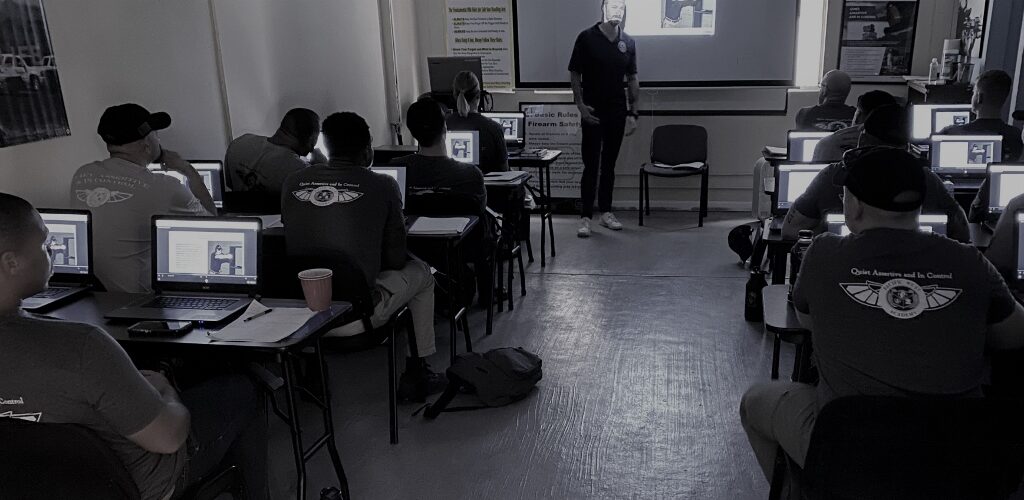

Traits of a Successful Executive Protection Professional
Traits of a Successful Executive Protection Professional
What makes a successful protection professional? If you search the internet these days, you will be bombarded with photos and videos of large, muscular men and women shooting guns, conducting high risk maneuvers in cars, or running tactical drills at the shooting range. When it comes to performance and training, a high premium seems to be placed on what we consider “hard skills”, but are these skill sets really the most important factor when it comes down to the simple question, “what makes a good security professional?” I don’t believe so. In my experiences, I have found that some of the most important factors in the composition of a successful agent aren’t technically what I would consider skills at all, I would consider them traits.
Before I continue, I want to preface this article by saying that I do consider “hard skills” to be important, from a contingency planning aspect. The popular saying of “if you find yourself using your weapon, then you didn’t do your job properly” is irresponsible and also a denial of the dynamic and uncertain environments in which we often find ourselves working. Situations that require hard skills are usually situations which can incur the most harm or damage to our clientele.
Being proficient in weapons application, hand-to-hand combat, evasive driving and medical skills are worth their weight in gold when it comes to damage mitigation and should never be overlooked or disregarded. No amount of planning can account for an unforeseeable event. This being said, these skills are not often used, and a lot of these situations can be avoided by a security professional possessing the correct combination of “soft skills” and personality traits.
Reliability:
In my opinion, reliability is one of the most important character traits in relation to the security industry. When you have a specific set of responsibilities, it is important that you can hold yourself to the standard of fulfilling your requirements. Reliability will effect everything from detail planning and conducting advances to punctuality. People who entrust you with important duties (clients, supervisors, managers) want to know that you will go the extra mile to complete your tasks and never shirk your duties. The agent who shows consistent reliability will often find his/herself given more important tasks and will be considered an asset not only by their superiors, but by their teammates and subordinates as well.
Confidence:
Confidence is another important hallmark of the successful professional. Clients and team mates often want to be surrounded by people who are sure of their abilities, both physical and mental. While working on security details, things often do not go as planned and fear and anxiety tends to be contagious. If you find yourself losing your cool during an uncertain situation, people will tend to lose faith in your abilities as a protector or teammate. The ability to remain calm and in control will often be responsible in keeping a potentially hazardous situation from escalating or spiraling out of control.
Accountability:
Accountability is the act of taking responsibility for one’s actions. This trait is important because I believe it embodies a number of traits including honesty, responsibility and self-awareness. An agent is often entrusted with a large number of responsibilities, and this can often equate to liability. The agent is who is honest not only with himself, but with others about their shortcomings or even failures, will hold himself to a higher standard, and this will stand out. Being able to view your self objectively and hold yourself accountable for your actions will allow you to identify not only strengths, but also weaknesses that can be improved upon contributing to overall personal growth.
Resiliency:
This industry can take a toll on you both mentally and physically. From working long hours and running on little sleep to dealing with stressful/dynamic situations, it is extremely important for security personnel to be able to absorb stressors while not dropping one’s guard or negating one’s responsibilities. Being both physically and mentally resilient will allow an individual to push through difficult circumstances and allow them to achieve the overall goal of protecting the principal(s) and helping to facilitate their movements.
Discretion:
In the world of Executive Protection, protecting the sensitive information regarding your client’s movements and personal life is paramount. We all understand that there is information regarding your client(s) that need to be kept private due to security concerns, but not all sensitive subjects correlate to security. You may find yourself spending a lot of time in close proximity to your client(s) and it is commonplace to be exposed to potentially sensitive information regarding both your client’s professional and private life. It is important for the client to understand that they can trust you with this information and therefore they will feel more confident having you around. Anything that you learn about your client regarding their personal or professional life should never be a topic of discussion outside of a professional environment.
Situational Awareness:
The ability to read your surroundings and understand how you fit into your environment is a huge factor when it comes to safely facilitating the movements of your client(s). This includes everything from understanding the physical environment in which you are operating to reading and understanding human behavior and social clues and how this can affect the outcome of specific situations. A proficient agent needs to be able to see “the big picture”. This, along with an understanding of cause and effect, can allow us to achieve one of the most important aspects of security, prevention. A thorough understanding of one’s place in relation to their environment can allow us to prevent threats not only by avoidance, but also by employing de-escalation and mitigation techniques.
All of the aforementioned traits fall under an over arching characteristic; professionalism. Being a well-rounded professional involves the right combination of hard skills, soft skills and personality traits. In my opinion, learning security centric skills is generally easy compared to the task of changing or instilling the personality traits that I have mentioned above. As long as you are self-aware and are able to honestly address your strengths and shortcomings, I believe that every individual has the ability to work on their character traits in order to develop themselves into a true security professional.
The skills and traits required to operate safely and efficiently in the Close Protection environment are hard to come by and are often unique, even when compared to military and law enforcement training. If you are new to the Executive Protection industry or are a seasoned security individual looking for professional development training, feel free to check out our 8 week Certified Executive Security Specialist (CESS) Program at Pacific West Academy.
